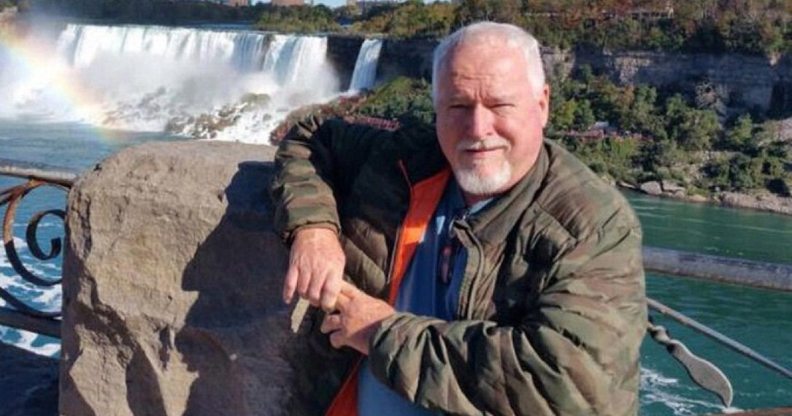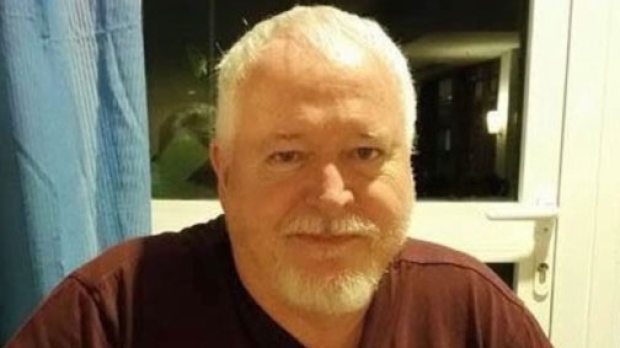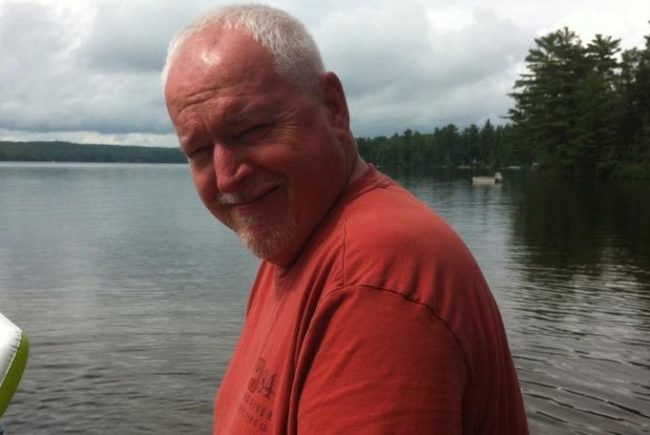Police find more human remains at site where alleged gay serial killer Bruce McArthur used to work

Bruce McArthur, a landscaper, killed eight men with ties to Toronto’s gay village. (Facebook)
Police have found more human remains at a site where suspected Toronto serial killer Bruce McArthur used to work.
The 66-year old has been charged with the murders of eight men, who all had ties to Toronto’s gay village.
Police discovered the remains in a ravine in a forest in the city’s Leaside neighbourhood, where the landscaper used to work, reports broadcaster CBC.
Authorities had already found some of the remains of seven of the men McArthur is charged with killing in plant pots in the garden of a north Toronto property.
Police have searched around 100 properties with connections to McArthur’s landscaping business.
Detective Sergeant Hank Idsinga, who is leading the case, told CBC: “We haven’t identified what the remains are or who they belonged to.”
NEW VIDEO: The dig out back of the house and down in the ravine. This is part of the Don Valley which is city property. After cadaver dogs flagged the area, city crews helps clear the brush so police could set up this excavation. @CBCToronto #BruceMcArthur pic.twitter.com/euTI9L2fzw
— Ali Chiasson (@Ali_Chiasson) July 5, 2018
He said that the latest remains could be of the deceased men, whose bodies have already been partially recovered.
Idsinga added that the identification process for the remains could take “days, weeks or months.”
McArthur has been charged with murdering eight men, many of whom were people of colour. They are: Skandaraj Navaratnam, Andrew Kinsman, Selim Esen, Abdulbasir Faizi, Kirushna Kumar Kanagaratnam, Dean Lisowick, Soroush Mahmudi, and Majeed Kayhan.
Police have found body parts of seven of these men, but have not yet found the remains of Majeed Kayhan.
The murders are believed to have taken place between 2010 and 2017, the year when McArthur was arrested in connection with the deaths.
McArthur has appeared in court over the murders, but has not yet entered a plea regarding the charges. His next court date is July 23.
LGBT+ campaigners have vented their frustrations with the slow pace of the police investigation, banning uniformed police from attending Toronto Pride last month. Activists also held a minute’s silence at the Pride event to remember the victims.
The family of one of the victims of the suspected serial killer have called for a public inquiry into police failings.

Bruce McArthur has been charged with killing eight men.
Haran Vijayanathan, a community activist and executive director of the Alliance for South Asian AIDS Prevention in Toronto, has previously said that authorities missed vital clues to the alleged killer in early years.
“Until that point, all the South Asian men that went missing kind of fell by the wayside and nobody paid attention until something happened in the white community,” he said.

More human remains have been found at a site where McArthur used to work.
The landscaper is said to have met the men on gay dating apps under the screen names ‘silverfoxx51’ and ‘Bear411’ while driving around Toronto in his white van.
In one online SilverDaddies bio, McArthur described himself as “a bit shy until I get to know you, but am a romantic at heart,” while adding that most men are “so far away”.
Dismembered remains of bodies were first found by police in planters at wealthy properties linked to McArthur, sparking a search for more remains at dozens of houses where he had been employed.
Police have been slammed after they admitted that they nearly missed evidence linked to the alleged serial killer.
Police admitted to The National that had one victim been reported missing later, they might not have tracked down McArthur.
“Andrew Kinsman was reported within 72 hours,” said Det.-Sgt. Hank Idsinga, referring to one of five men McArthur is charged with killing. “A crucial piece of evidence was uncovered because of that immediate reporting.
“If he had been reported seven or eight days after he disappeared we wouldn’t be here today,” Idsinga said.
“You stop when the evidence stops,” he added. “You can’t leave these families out there wondering.”

